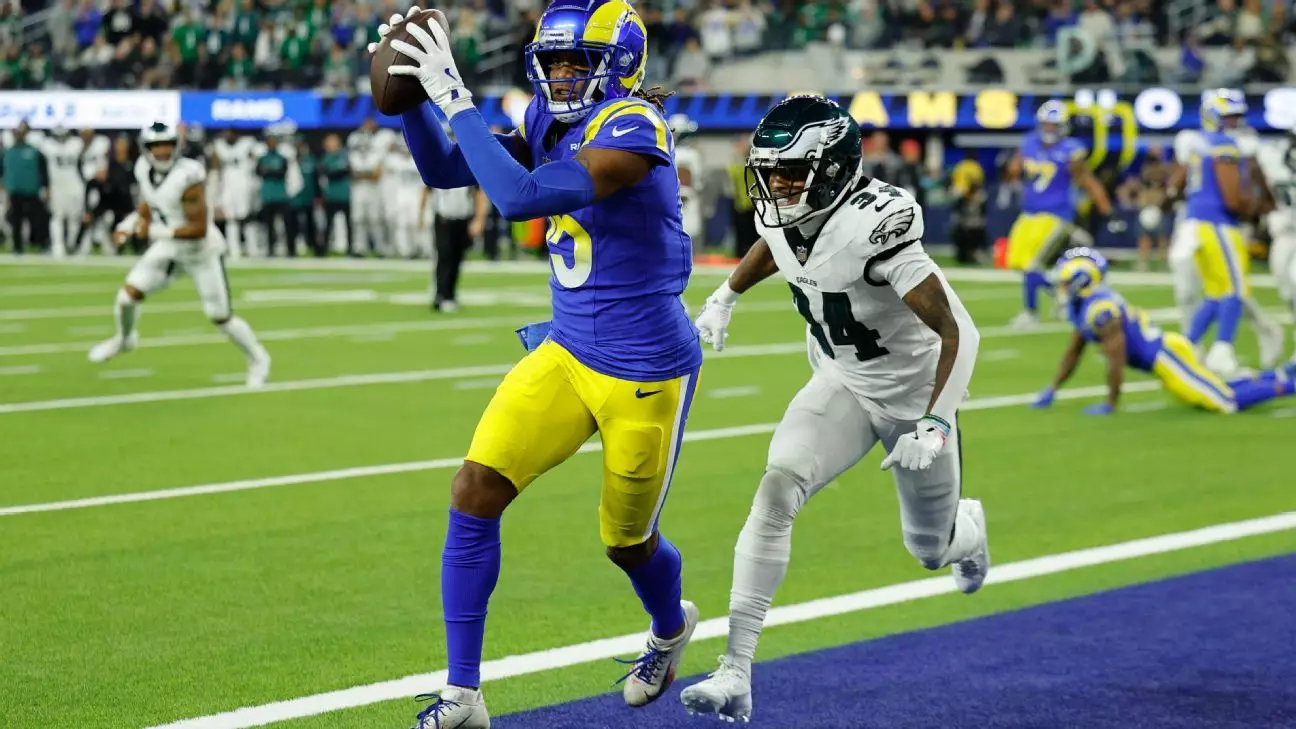The recent incident involving Los Angeles Rams wide receiver Demarcus Robinson has sparked significant discussion about personal responsibility, team culture, and disciplinary measures in professional sports. The episode raises critical questions about how organizations address player conduct, especially in sensitive situations like driving under the influence. While the Rams have chosen to allow Robinson to continue playing without suspension, the implications of his actions extend far beyond immediate consequences.
Demarcus Robinson’s arrest happened in the early hours following a game where he had experienced a personal high, scoring a touchdown in a loss to the Philadelphia Eagles. Driving at over 100 mph on U.S. 101, Robinson was apprehended in Woodland Hills, California, after making an extremely dangerous decision that could have led to severe repercussions not just for himself but for innocent bystanders as well. Such conduct is emblematic of a broader pattern seen across sports, where the line between professional success and personal accountability can become blurred.
Coach Sean McVay’s comments reflect a level of understanding and empathy towards Robinson, indicating that he acknowledges both the severity of the situation and the player’s remorse. McVay stated the team would allow the legal process to take its course while not sidelining the player due to his arrest. However, this decision raises questions about what accountability truly looks like in sports organizations. Are teams enabling poor behavior by opting for leniency, or are they fostering an environment where players can learn and grow from their mistakes?
In the aftermath, it was evident that the Rams organization has taken a multi-faceted approach to handle the fallout from Robinson’s actions. Robinson addressed his teammates, acknowledging the detrimental impact of his recent conduct and noting that it presents a teachable moment for the entire team. McVay described this candid admission as crucial, recognizing that while the mistake was serious, the lessons derived from it are invaluable for player development.
Such transparency within the team promotes a culture of accountability. Robinson’s determination to take responsibility for his actions – citing the potential for others to learn from his ordeal – highlights the importance of open communication in professional sports. Instead of sweeping the matter under the rug, the Rams appear committed to addressing the implications of Robinson’s behavior head-on, which could potentially foster a greater sense of unity and moral responsibility among the players.
Broader Implications for NFL Culture
Robinson’s case is far from isolated; it shines a light on ongoing discussions about personal conduct among athletes and its repercussions for team dynamics and the league’s reputation. Organizations like the Rams must continually assess how they manage player discipline, and McVay’s comments indicate a recognition of the need for growth and improvement in this area. It highlights the challenge leagues face balancing the entertainment aspect of sports while ensuring that their players embody acceptable conduct.
Furthermore, the NFL has been under scrutiny for its responses to player misdemeanors, with critics often pointing out inconsistencies in how disciplinary actions are applied. The apparent leniency shown to Robinson invites comparisons with other cases, raising concerns about what precedent it sets for future conduct. As the professional sports culture evolves, the need for clearer guidelines and robust support systems for players becomes increasingly urgent.
The incident involving Demarcus Robinson serves as a crucial turning point, not only for him as an athlete but for the entire Rams organization and beyond. While the decision to not suspend him may have appeared to some as an indication of leniency, it can also be viewed as an opportunity for growth and reflection. As Robinson himself noted, the experience has the potential to become a powerful lesson on accountability and decision-making for both him and his teammates.
Ultimately, this episode can contribute to a broader dialogue about professionalism in sports, where players are encouraged to reflect on their actions and understand the broader impact they can have beyond the field. The hope is that, moving forward, this situation will spark discussions that foster a more responsible and aware sporting culture, where athletes learn not only from their successes but also from their missteps.


Leave a Reply